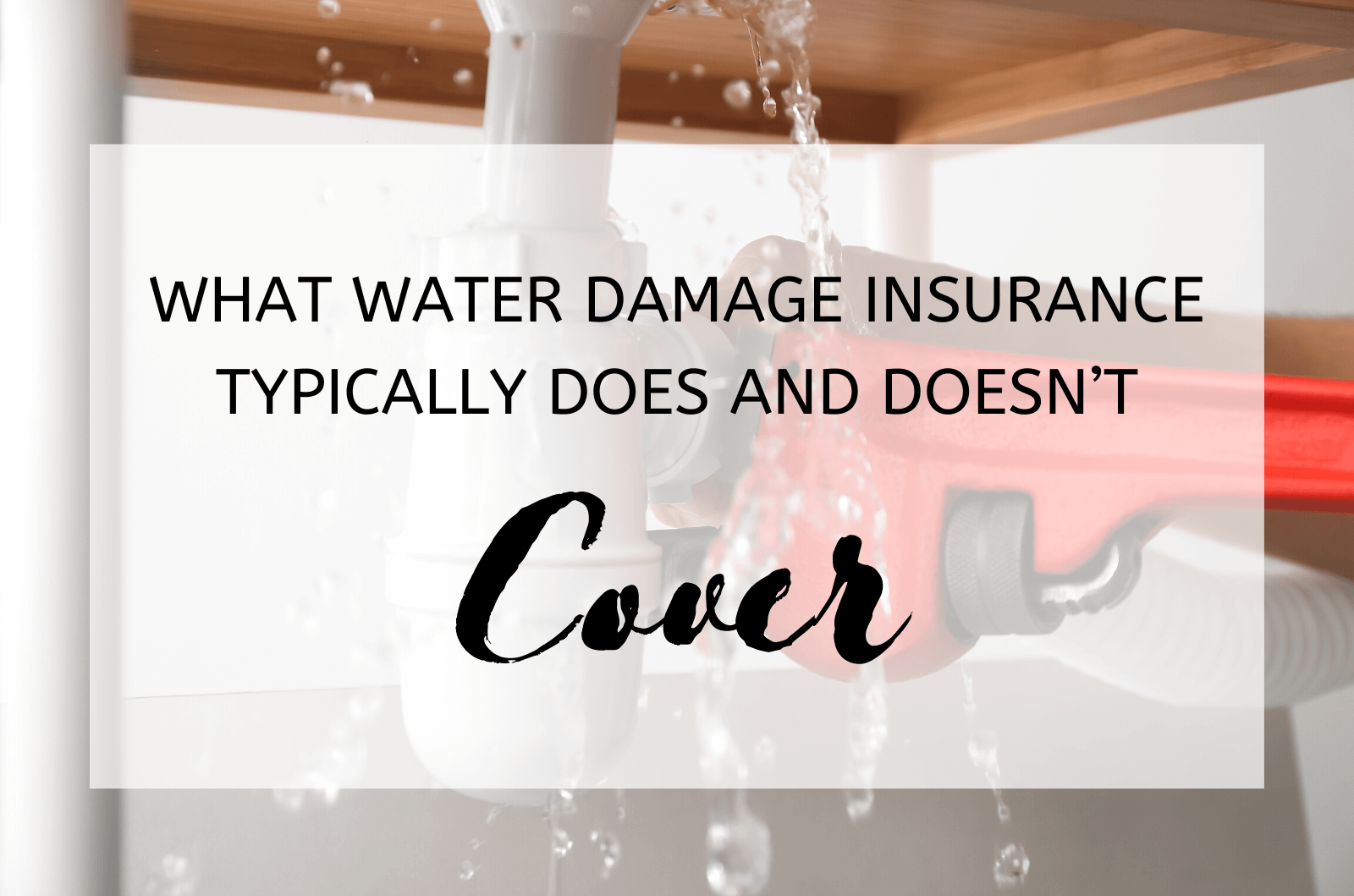
For instance, you can obtain water damage insurance. Water damage can happen in several ways, and when it does, you must repair it quickly. Otherwise, mold could develop which harms humans and animals. You also can’t usually sell a water-damaged home.
It’s important to understand what water damage insurance is and what these policies usually do and don’t cover.
What is Water Damage Insurance?
We cannot overstate the importance of comprehensive water damage coverage. You will see most homeowner’s insurance policies cover water damage. These policies can cover some accidental or sudden water damage situations.
What Causes Water Damage?
If you have a leaky pipe, for instance, it can cause water damage in your home. If a pipe bursts or backs up, that can also cause severe damage. Alternatively, you might also see water damage from a clogged gutter. The water can spill out from the gutter’s boundaries and run down your home’s exterior or interior walls.
You could also see water damage if you have a washer and dryer set up somewhere in your house. Many times, you’ll see these machines in basements, but you might have a laundry room located somewhere else. The washer leaking can cause water damage.
A malfunctioning dishwasher can cause water damage. You may also see water damage if you have a tub or shower leak. Water damage might occur if your sump pump malfunctions or there’s flooding from a lake or river nearby.
What Water Damage Does the Standard Insurance Policy Cover?
When you obtain homeowner’s insurance, you can look over the policy and see what it does and does not include. The average homeowner’s insurance policy will cover some form of water damage, but not every situation that might arise.
Usually, the homeowner’s policy will kick in if you have accidental or sudden water damage, like a leaky pipe under the sink or a malfunctioning appliance. If your dishwasher backs up, for instance, and the water damages your hardwood floor, your homeowner’s insurance policy will probably cover the repairs. You must read the fine print to make sure before you call a repair company.
Restoration companies exist, and they handle water damage. If you don’t have homeowner’s insurance, you can contact one of these companies, or you can do the work yourself. Unless you have some serious do-it-yourself skills, you should leave water repairs up to the pros. If water leaks into your walls, floor, or ceiling, that’s a complicated job, and best left to professionals.
What Water Damage do These Policies Not Cover?
Many homeowner insurance policies do not cover water damage that occurs if the homeowner made a mistake. For instance, maybe you installed your dishwasher, but you did not do it correctly and water damage occurs when you turn it on and use it for the first time.
In this case, your insurance company will likely say your negligence caused the water damage. Anything where the company feels you acted negligently or in instances where they say you didn’t maintain your home in good repair, they won’t pay out any money for the fix.
Also, many policies do not consider flood damage typical water damage. Maybe you live near a lake, for example, and you feel your home might flood in the case of a bad storm. In this instance, you could not use your homeowner’s insurance to cover flood damage unless the policy specifically features specific language mentioning that.
How Can You Close Any Existing Insurance Gaps?
If you notice an insurance gap because you have standard water damage insurance but not flood insurance, you can buy a separate policy for flood damage. You might also get a rider on your current policy that mentions flooding. If choose to do either, you’ll be paying more money.
Flood insurance usually costs more than what you’d pay for a more general homeowner’s insurance policy. If you live right by a body of water – a large river, lake, or ocean – getting this policy or attaching a flood rider makes sense. You’ll need that policy just in case the unexpected occurs and your house floods.
You should consider water damage insurance, whether it’s a separate policy or your general homeowner’s policy includes it. Either way, you need protection for the unexpected, and you’ll feel relieved when you have it.


